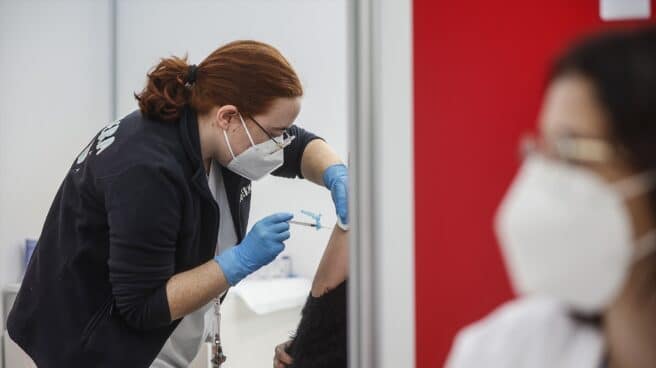

A new Covid vaccination campaign is starting this fall, although not everyone needs to get another dose.
This Monday, September 26, a new Covid vaccination campaign starts, this will be the fourth dose, in which case booster doses adapted to the omicron variant will be offered.
The first person to receive this dose will be the most vulnerable. Like the first vaccination campaign in early 2021, it is aimed primarily at residential residents over 80 years of age. However, it will later spread to the rest of the population. This is the criterion of the Ministry of Health, which announced yesterday that Spain will receive 44 million omicron-adapted vaccines.
Experts from the Science Media Center (SMC) shared questions and answers about the new Covid vaccine in a pandemic where restrictions are being gradually lifted.
Do I need to get vaccinated if I haven’t already?
SMC experts say it’s “never too late to get vaccinated” and furthermore cite studies showing that the best immunity is that which is produced in a hybrid way, i.e. from a natural infection plus a vaccine.
This is stated in a recent study published Independent, which also indicates that two out of three people who had an infection without vaccination developed antibodies after a year. This is yes, the study was carried out before the advent of Omicron.
Do I need to get another shot if I have already had two or three shots?
This campaign will use ómicron-adapted vaccines, which is why the SMC stresses that “the extra dose can help us boost the immune response.”
Should I get vaccinated if I have recently had Covid?
A recent study cited by SMC suggests that you may have to wait up to two months to get vaccinated after exposure, and this was stated in the United States. Although some immunology experts recommend waiting six months to give the immune system time to develop a full and powerful response. However, the time may vary depending on the individual situation and conditions.
I’m young and healthy, do I really need another dose?
Although early doses provide tremendous protection against hospitalization and death, protection against infection declines rapidly over several months. For this reason, by getting vaccinated we can avoid infection and help reduce transmission at the population level during the winter season, they explain at SMC.
Which vaccine is better adapted to BA.1 or BA.4/BA.5?
Immunologists and epidemiologists agree that the best vaccine is the one that is within our reach. At the population level, many studies will be published on which combination or updated dose is better, or even better to alternate hands or not. On an individual level, it doesn’t matter and the differences are not expected to be significant: any vaccine will boost our immune response to the next wave of autumn and winter.
Which is better, adapted vaccines or original ones?
There are no studies yet that compare these efficacy, but immunologists believe that they will at least be similar. As the third dose already did after the introduction of omicron at the end of 2021, the new booster dose will boost the population’s immune wall and help reduce the number of serious cases in the coming months.
Will I have to get vaccinated every year?
There is still uncertainty about the long-term relationship we will have with the coronavirus and its vaccines. According to the SMC, it is possible that the most vulnerable populations should be vaccinated every year, as they already do for other diseases such as influenza and pneumococcal pneumonia.
The new vaccines are said to have only been tested on mice. This is true?
Individual doses against BA.1 have been tested in clinical trials involving hundreds of people. Data directed against BA.4/BA.5 is only available in mice. The latter is normal and is already being done every year with flu vaccines: covid-19 vaccines have already been used with millions of people, and their safety has been proven over and over again. Minor changes that the update involves are not a problem in this sense.
Can over-vaccination be counterproductive to the immune system?
Many vaccines have more than four doses in a schedule, while others, such as the flu vaccine, are used every year. In this sense, getting new doses is not counterproductive.
Can I avoid infection if I get vaccinated? How?
COVID-19 vaccines have been shown to reduce the transmission of SARS-CoV-2, but with the latest options, that protection has been much less, lasting several months. When and for how long the new doses will limit transmission remains to be seen, but although they are similar to previous ones, they may help reduce the number of cases. At the population level, this can be paramount in reducing hospital admissions and preventing outbreaks in places like homes.
Source: El Independiente